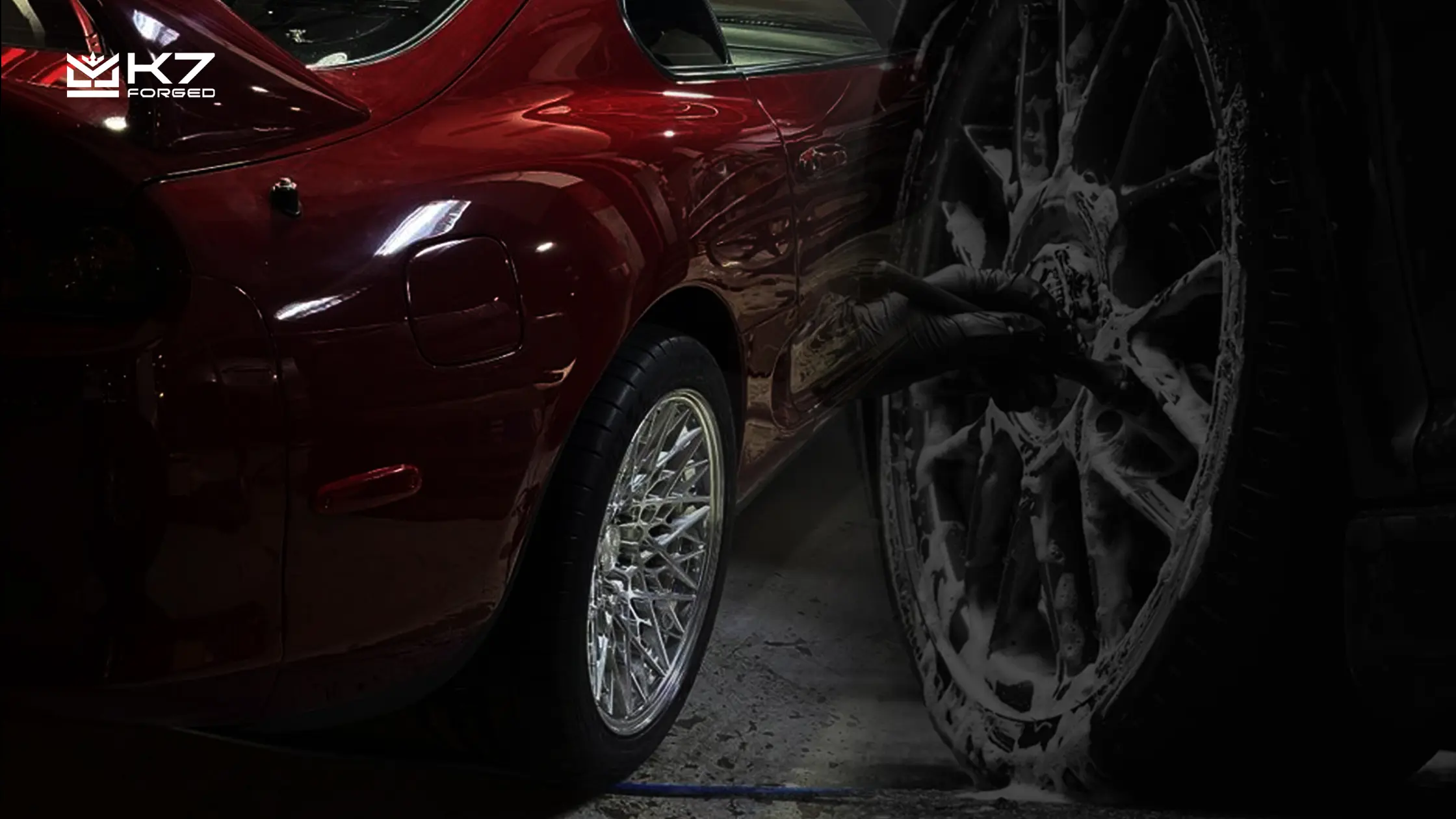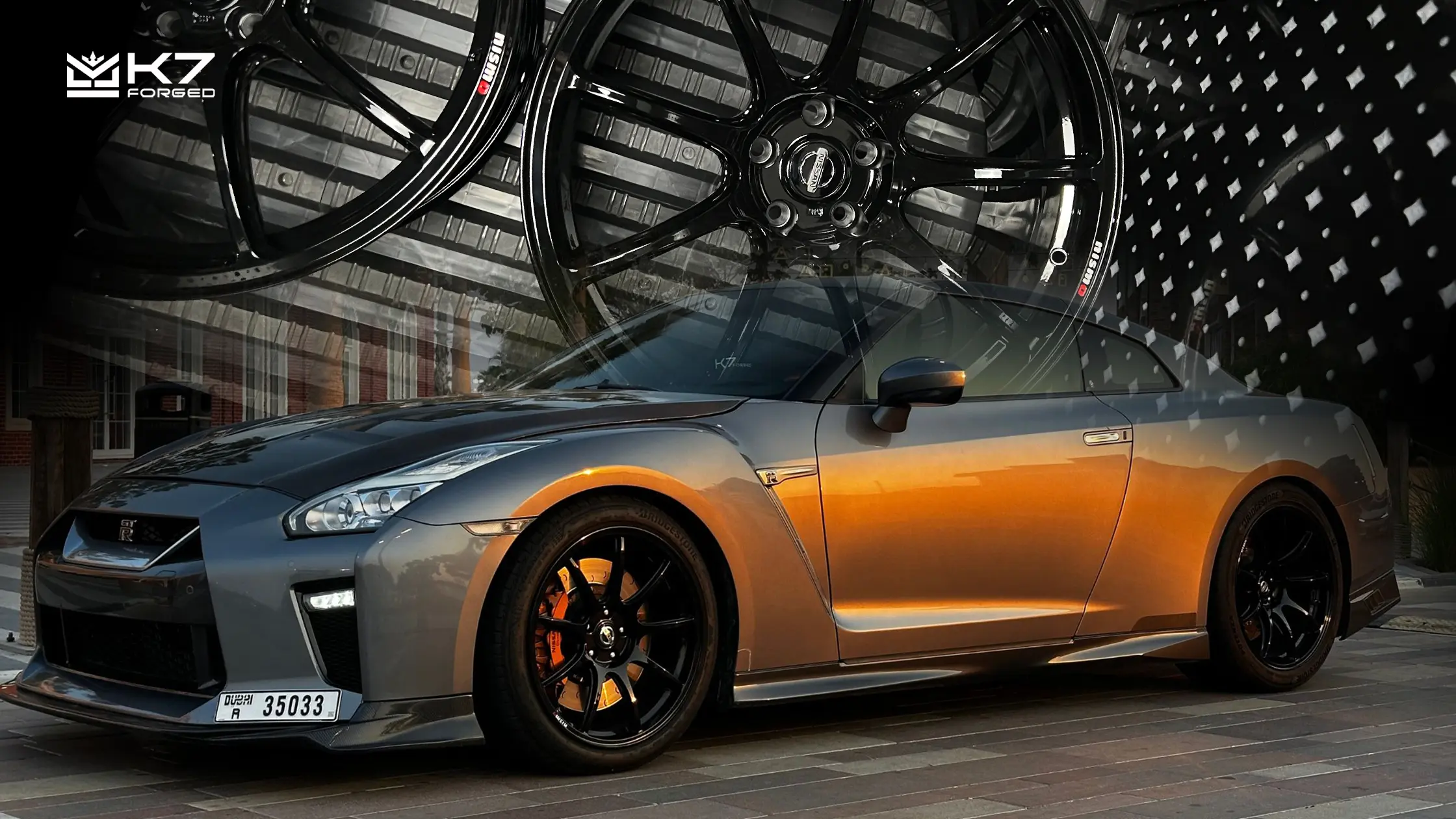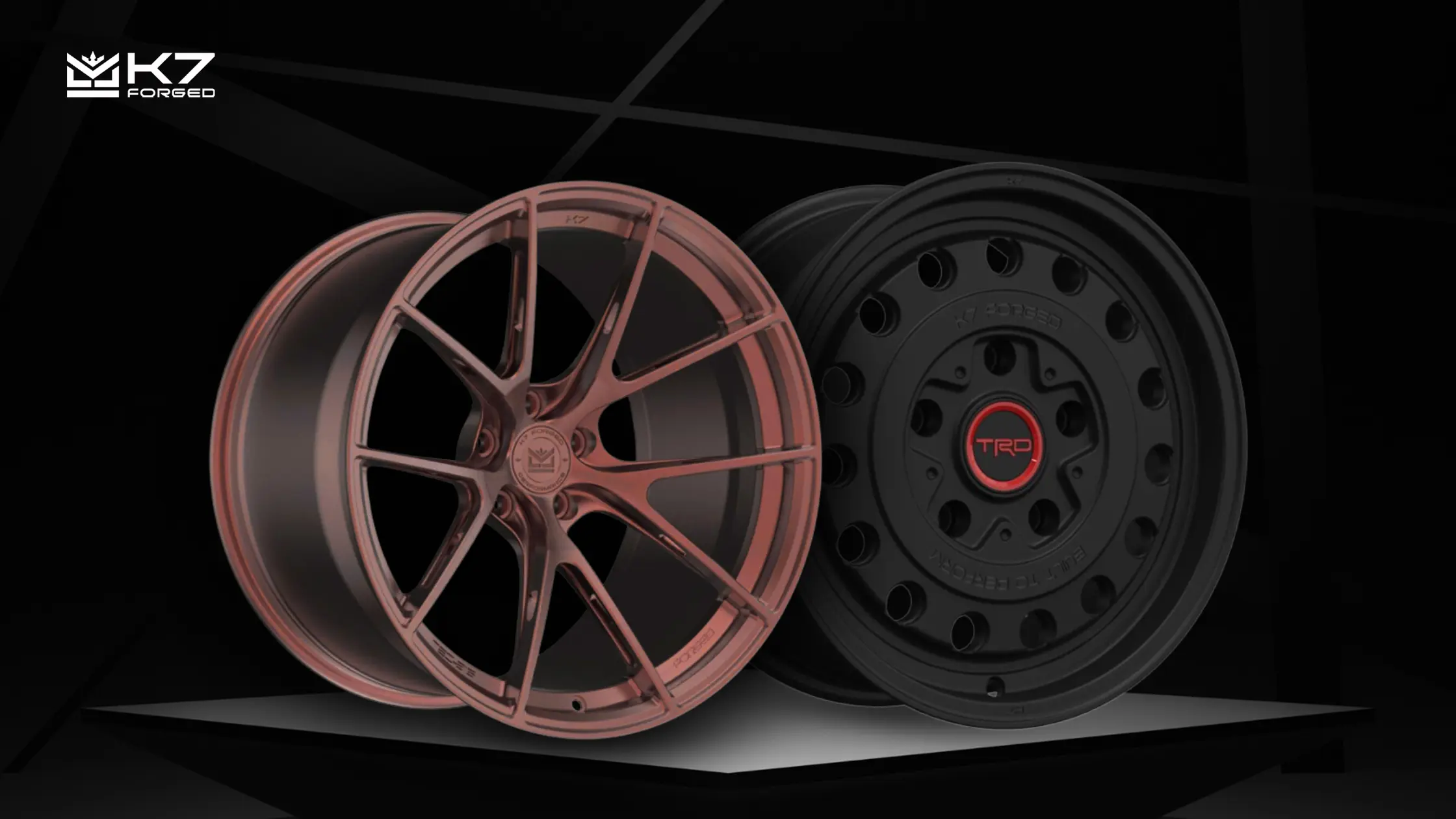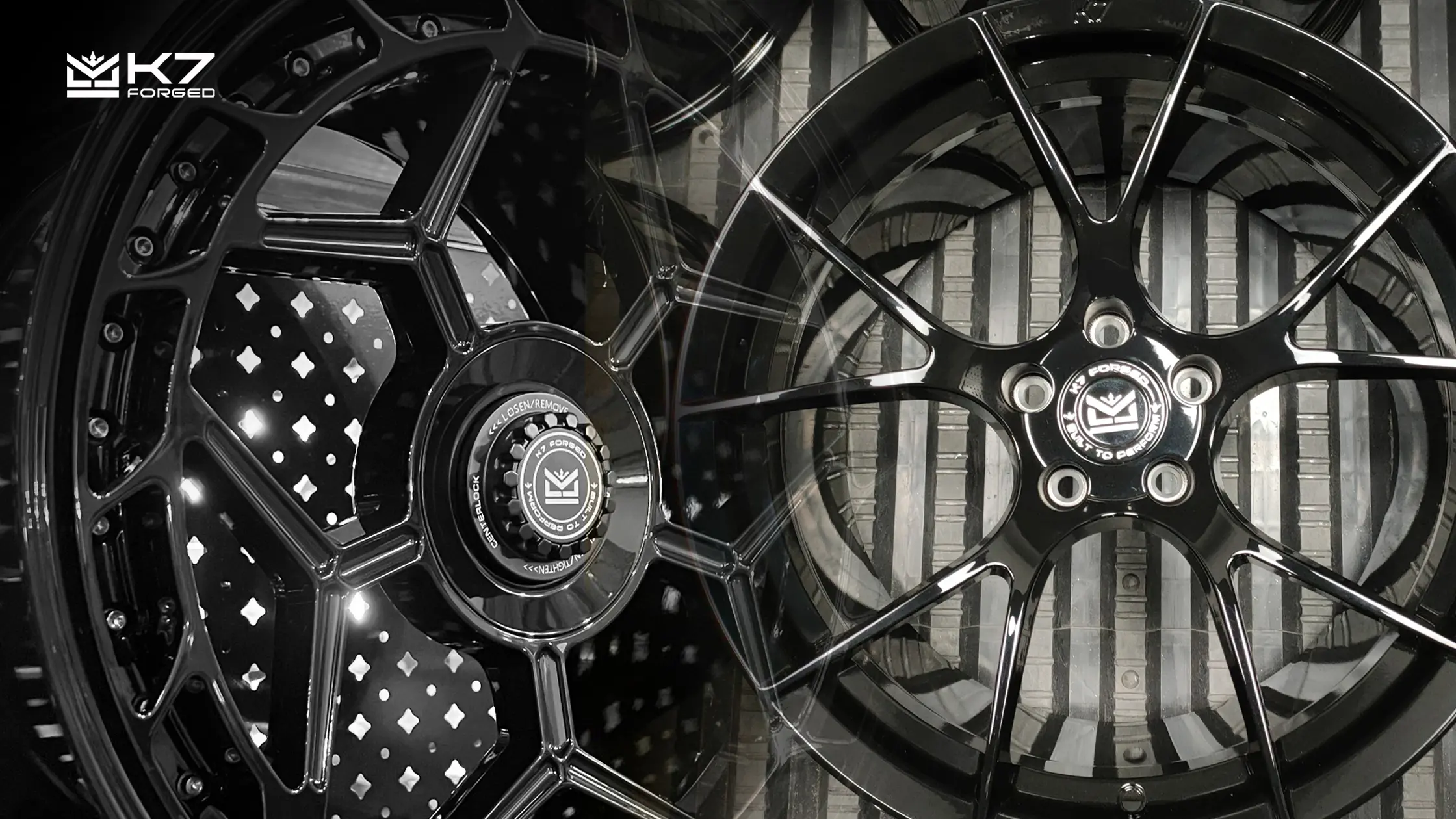Alloy wheels and custom rims are significant investments costing upwards of AED 2000. For car enthusiasts buying their first set of wheels, you’ll probably wonder how important ceramic coating is to protect these wheels. Some aftermarket wheel manufacturers may even pressure you to do it. So should you? Especially since you already spent so much on your custom rims.
Key Highlights
- Ceramic coating makes wheel cleaning easy by repellin water and contaminants
- It creates a barrier against break dust and road grime to preserve the wheel’s finish
- While it offers some resistance too minor abrasions, it doesn’t protect against physical damage.
- Proper application and maintenance are necessary for the coating to be effective and durable.
- High-quality wheels don’t require ceramic coating, but can benefit from the added protection.
What is ceramic coating for alloy wheels?
Wheel ceramic coating is a liquid polymer that sticks on to surfaces and adds a protective layer. Nano-ceramic particles suspended in a solvent or water-based solution chemically bonds with the wheel’s surface, creating an ultra-thin, transparent shield.
What makes these coatings hard and resilient is the presence of Silica Dioxide (SiO2) and Titanium Dioxide (TiO2).
Properties of ceramic coating
- Hydrophobicity
- Glossy finish
- Heat resistant
- UV protection
- Chemical resistance
- Oxidation prevention
How long does ceramic coatings last?
Ceramic coatings last between 1 and 5 years. There are two things at play here. One is the obvious product quality difference where some coatings last more, the other most important one is how you maintain it.
Dubai has some amazing roads, but there is also sand, which at high speeds, the ceramic coatings may wear off quickly.
Compatible surfaces and finishes
The good thing about ceramic coatings is that you can apply it to almost all wheel finishes, including painted, powder-coated, clear coated, and anodized wheel surfaces. However, the type of ceramic coating product you use should be compatible with the wheel finish.
What are the benefits of alloy wheel ceramic coating?
If you coat your new set of alloys with a high-quality ceramic coating, the following are the things you’ll notice:
Makes cleaning and maintenance easier
Ceramic coating creates a water-repelling surface on wheels, so water and contaminants bead up and roll off. If you wash your car often, you wouldn’t have to spend extra time wiping off water and soap from the wheels.
Protects against brake dust and road grime
Wheel ceramic coating acts as a barrier that prevents brake dust and road grime from sticking strongly to the wheel surface. Also, the coating reduces the risk of pitting, which is the formation of small, localized corrosion spots on wheel surfaces.
Gives your wheel long lasting shine
A pure glossy finish is a trademark of wheel ceramic coatings. Of course, the effect changes based on your wheel’s original finish. Like for example, if you have a matte finish wheel, you would’nt get a shiny finish, but you’ll get a darker sheen. It’s more like protecting the finish your wheel already has for which there are plenty, because K7 Forged has one of the largest collection of alloy wheel finishes.
What are the negatives of ceramic coating?
While ceramic coating is like a protective layer, it is no where near as resilient as PPF (Paint Protection Film) that we use to protect our vehicle’s paint job.
Not a substitute for physical protection
It’s true that ceramic coatings offer some resistance to minor abrasions. But don’t assume that they protect against significant physical damage. It will not make your wheels scratch proof or resistant to any rash driving where sand and stone may scrape the wheel finish.
Applying ceramic coating needs careful preparation
All these benefits of ceramic coating may cease to exist if it is not applied properly. Applying the coating before you mount the tires may interfere with the wheel weights adhering properly. Also, if the coating is already on, the lubricant applied while mounting the tires may mix with the coating.
Not as durable as you think
Most professional car detailers tells us that they observed wheel coatings not lasting more than 2 years on a daily driver irrespective of the brand.
Maintenance tips for wheel ceramic coating in Dubai
- Rinse your wheels often to avoid break dust and sand to wear down the coating.
- Use pH-neutral cleaners that do not strip the coating prematurely.
- Use only soft wheel brushes and microfiber mitts for wiping.
- If those wheels are your daily driver, reapply the coating after 12–18 months
Ceramic coating needs this levels of maintenance too. So instead of asking if ceramic coating is worth it, ask yourself if you are willing to pay extra to protect your wheels. Because for wheels without warranties or high-end finishes, ceramic coating becomes more like a necessity.
Is ceramic coating necessary for high-quality wheels like K7 Forged?
The short answer? No. But it definitely helps.
K7 Forged wheels already come with serious quality credentials like a lifetime structural warranty and a one-year finish warranty. So you’re not dealing with cheap cast alloys that oxidize at the first sign of moisture.
But ceramic coating still adds value. If you clean your car often, don’t like seeing brake dust, or you just want that deep, glossy sheen to last longer between washes, then ceramic coating is for you.
FAQs
- Can ceramic coating be applied to wheels with existing damage or corrosion?
It’s best to repair any damage or corrosion before applying ceramic coating.
- Does ceramic coating change the color or finish of matte wheels?
Ceramic coating adds a subtle sheen but won’t significantly take away the matte finish.
- Is it necessary to remove old wax or sealant before applying ceramic coating?
Yes, you need to remove existing wax or sealant for ceramic coating to properly bond to the wheel surface.
- How soon can I drive after applying ceramic coating to my wheels?
We recommend to wait at least 12–24 hours for the coating to cure properly before driving.






